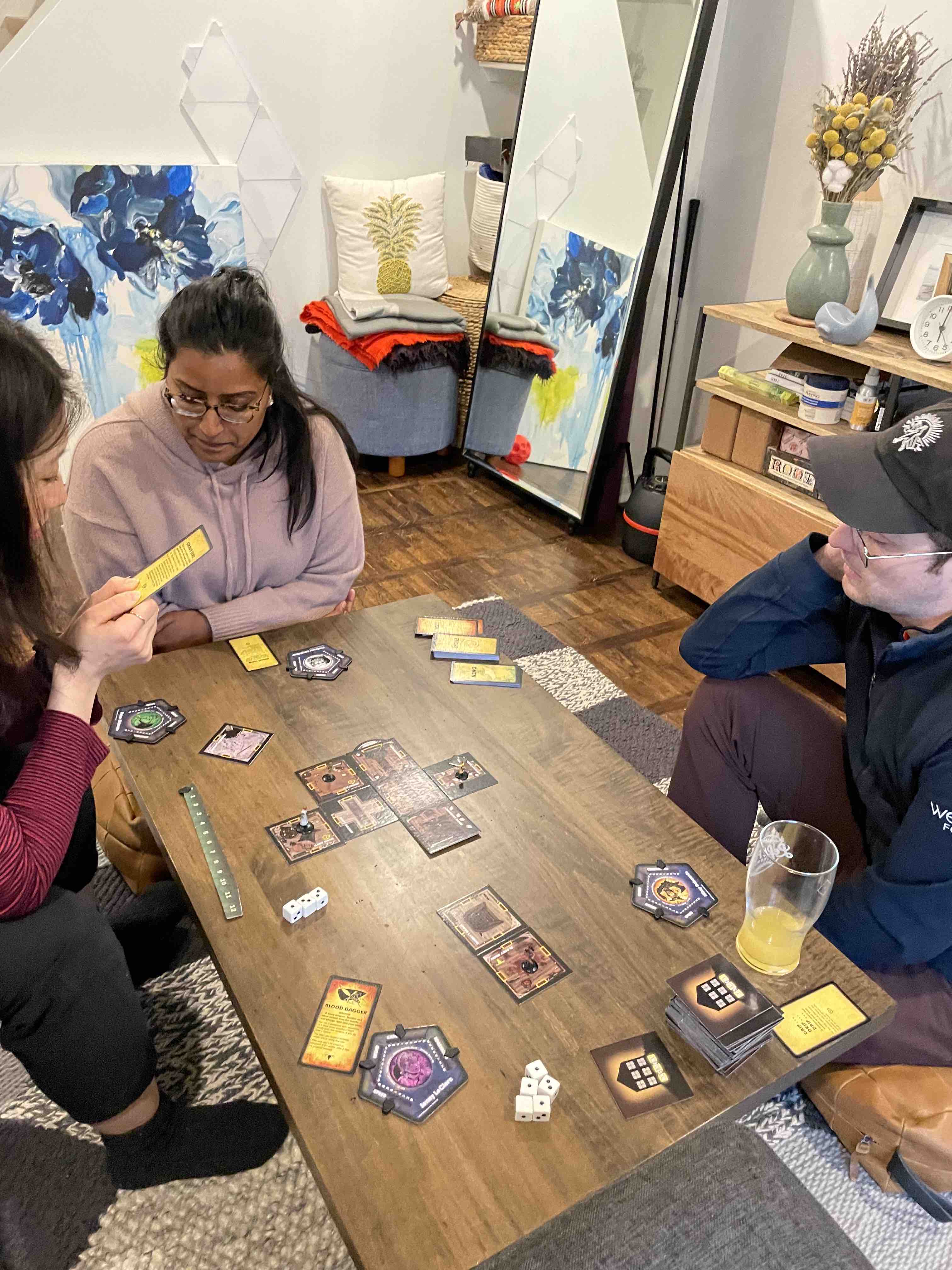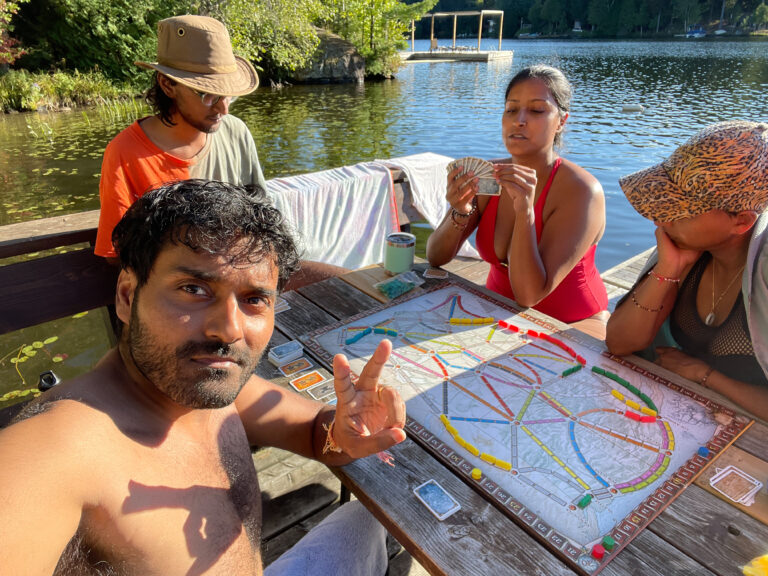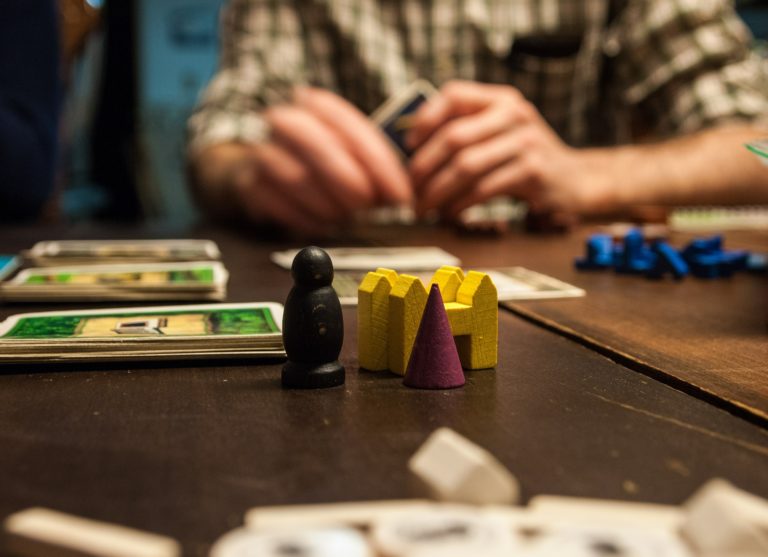The once forgotten family board game night is climbing back in popularity mostly because it’s a fantastic, low cost way to spend quality time with loved ones.
Family board game night helps break up the monotony of the work week, as well gives everyone a much needed break from electronic devices.
Personally, I eagerly look forward to each and every board game night with family and friends. And, although it takes a little bit of planning, every time has been a blast.
So, to help plan your next epic family or friends board game night, here are 5 super practical tips!
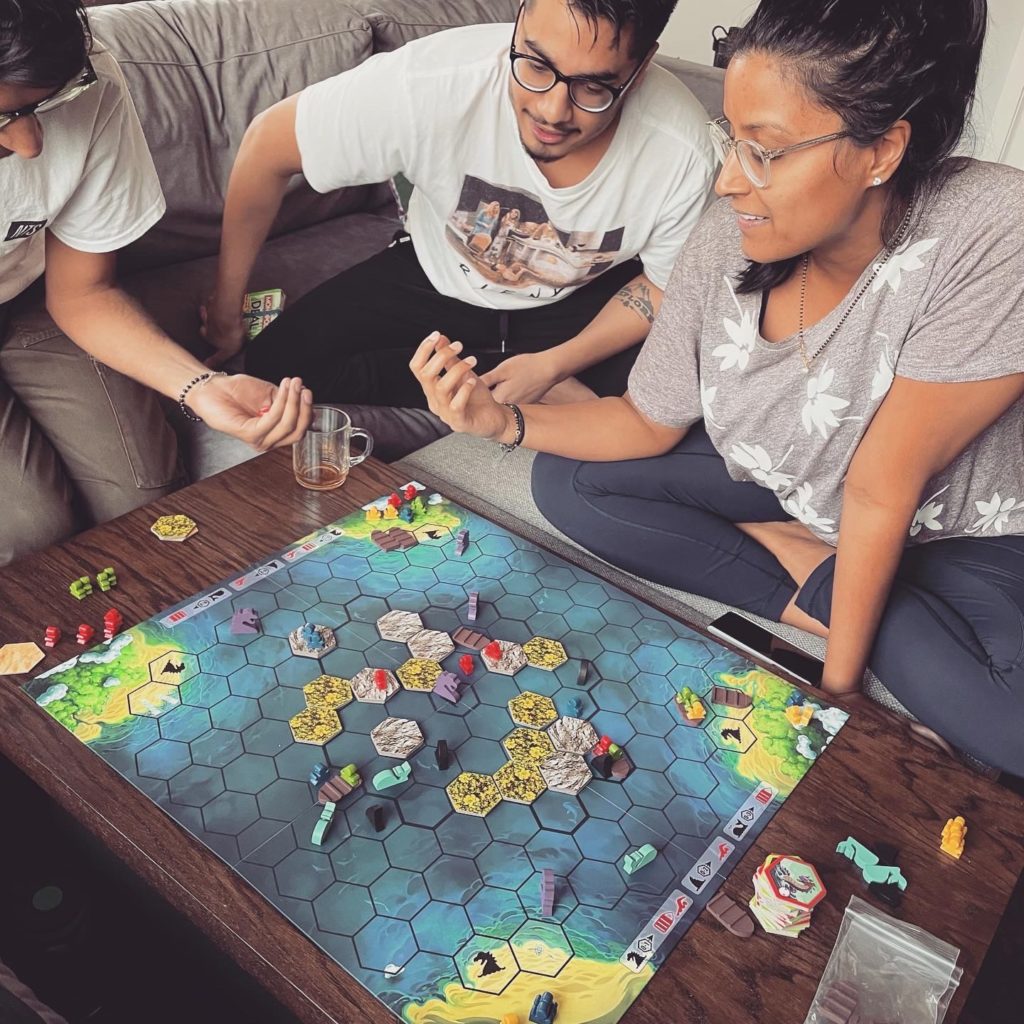
What are the Benefits of Family Board Game Night?
Building Positive Family Dynamics
It goes without saying that playing games and taking part in guided social interactions has a positive correlation with forming bonds.
Board game manufacturers such as Hasbro, as well as independent research [link], have concluded that regular board game use leads to improved problem-solving skills, self-care, responsibility, and closer family ties.
Personally, board game nights have brought my wife and I closer to our family and friends. The time we get to share together is invaluable and positively reinforces our relationships with our loved ones.
Much Needed Break in Schedule
Both kids and adults have increasingly busier schedules than before and rarely does everyone get a chance to slow down and spend quality time with one another.
Scheduled family board game night allows everyone to have a break from their usually fast-paced life.
It gives everyone a chance to break up the monotony of the week, and to enjoy something completely different than work, sports or academic studies.
Helps Fuel Creativity, Competitiveness or Cooperation
Whether it’s developing a strategic mindset, forward planning, cooperation and teamwork, or creativity, board games are so much more than just a game.
They help individuals develop mind and social skills like math, deduction and persuasion.
These life long skills can be fostered and developed at an early age and it can be as easy as rolling the dice or picking up a card!
Create Lasting Memories
For most players, playing board games isn’t about winning or losing (well, most of the time!).
It’s about sitting around a table with your friends and family, and doing something together.
Whether that means sharing strategies, acting out a scene, or laughing during game play, the memories that are created during family game night are vivid and real.
The memories can invoke feelings of joy and love, as well as motivate you to reconnect with cherished loved ones.
Truly board games are much more powerful than they appear to be.
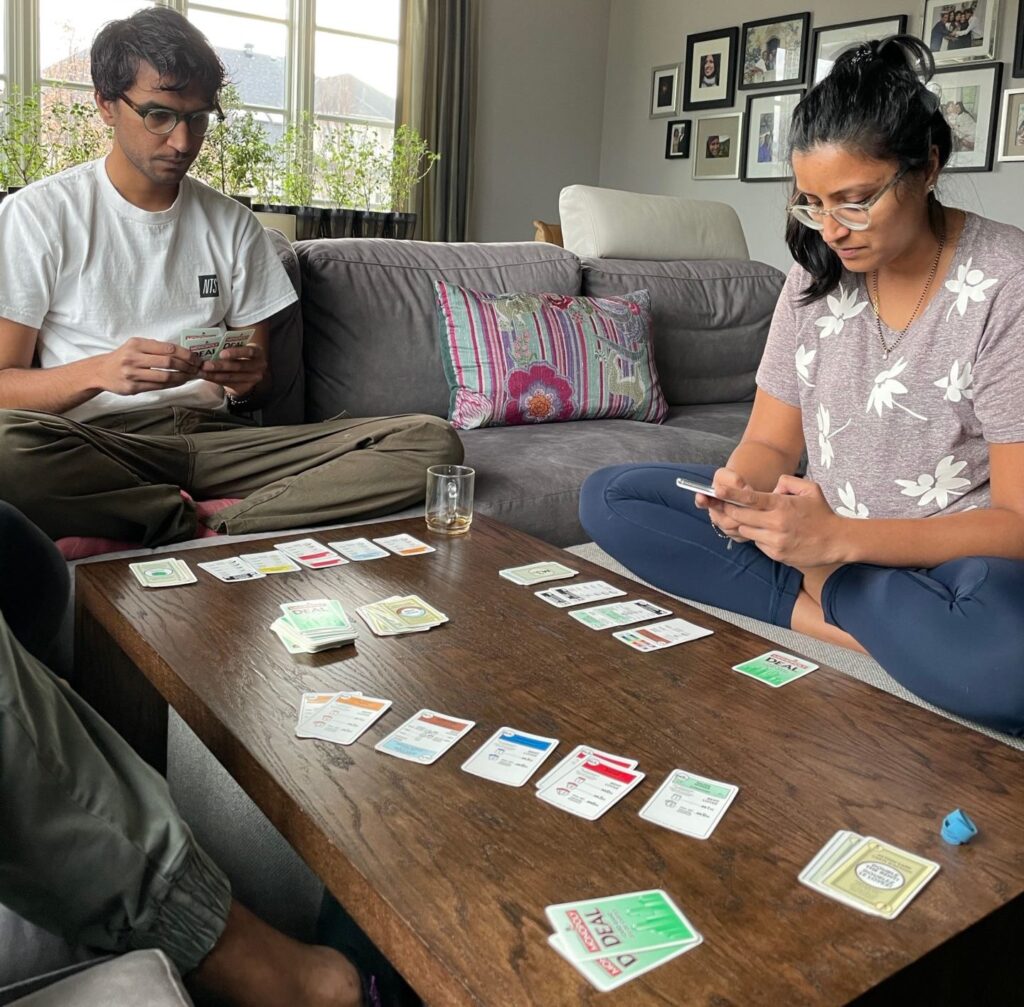
1. Schedule a Date to Build Anticipation
Probably the biggest hurdle standing between you and family board game night is actually finding a date and time that works for everyone.
Which Day of the Week Is Best for Board Games?
Practically speaking, with advanced planning, you SHOULD be able to find a day that works.
But, it’s best to purposely plan a day that doesn’t conflict with personal deadlines or alternate activities. This ensures family members are fully engaged and present.
There are certain days of the week that might be better suited for family board game night than others.
- Wednesdays, Fridays and Saturdays are typically the best days to schedule a game night.
Personally, I enjoy a game night on Wednesdays. It’s a fantastic way to break up the week, and Wednesdays typically don’t coincide with TV shows or other personal commitments.
Let Kids Help Plan a Date
Instead of the adults planning and penciling in a date that works, why not let the kids do the planning!
When kids are actively involved in the planning process, they naturally become more invested in the event.
Planning helps them stay committed to game night and gives them accountability. That way, they have an easier time accepting as well as participating, since THEY are the ones asking everyone to make time for game night.
They can they also help build anticipation, counting down the days, hours and minutes until the time arrives to gather around and play!
2. Decide on a Theme and Go All Out!
Although not mandatory, to add a bit of variety and intrigue to family board game night, I suggest coming up with a theme!
Themes can be simple and standard or abstract and wild – let your imagination go crazy.
Some common themes that tie in nicely with board games include:
- American west / cowboys / cowgirls
- Murder mystery
- Travel / adventure
- Sports
- Superhero
- TV shows / movie
- Zombie apocalypse / survival
- Aliens / outer space
- Witches / wizards / magic
Whatever you end up choosing, you can turn up the commitment level to 11 by dressing up, changing accents, and making decorations.
3. Pick Family-Friendly Board Games Ahead of Time
Now, when it comes to family friendly board games, there are a plethora to choose from.
However, there are a few key game specifications you need to keep in mind which depend on who exactly will be playing.
Suggested Age Limit
Board games almost always have a suggested minimum age limit. This helps highlight how difficult the game is to learn and play, as well as indicates if there are any potential safety considerations for young children ( i.e., choking hazards).
Usually, but not always, the lower the age limit, the more the board game is geared towards younger players.
Number of Players
The number of players is also always clearly indicated on board games. I find that games that have a large range in number of players (for example “2 to 8”) are generally better to play when there are more players involved.
So, if you have a growing family or circle of friends, or expect the number of participant to increase or decrease over time, it’s best to find games that can easily accommodate more or less players without impacting the game dynamics.
Game Duration
Probably the biggest indicator of interest and engagement in a board game is how long a game takes to play.
Some board games are quick, lasting 30 minutes or less, while others are truly marathons, lasting hours.
Thankfully, not all board games are 4-hour Monopoly grudge matches. You can easily find time-appropriate games that work great for different age groups and interest levels.
For younger kids, board games between 15 to 30 minutes are fantastic. This time frame allows them to get fully invested and engaged in the game dynamics without feeling bored.
For older kids, teens, and adults, longer duration games (30 minutes to 2 hour) are sometimes more applicable to play since they can sit and play for extended periods.
Cooperative vs. Competitive Board Games
Most board games can be classified into two types: cooperative or competitive. And, depending on the audience, you’ll have to make a judgement call on which type is more suitable.
Both board game types can offer a lot of life lessons while playing including teamwork, fairness, how to strategize, and how to lose.
Some people naturally lean more towards more competitive games while others prefer the opposite.
To ease younger kids into playing board games, it’s good to first start off by playing cooperative board games. Everyone ends up working together to complete the game and the overall outcome is shared amongst the players.
For individuals who are more independent, competitive board games are probably a better choice. Competitive board games allow them to express their individuality through their gameplay and gives them accountability for their actions.
Pro-tip: Check out my extensive list of Cooperative Board Games as well as Competitive Board Games for family board game night recommendations!
I’ve personally played every single game on each list, and these are without a doubt some of my favorite games!
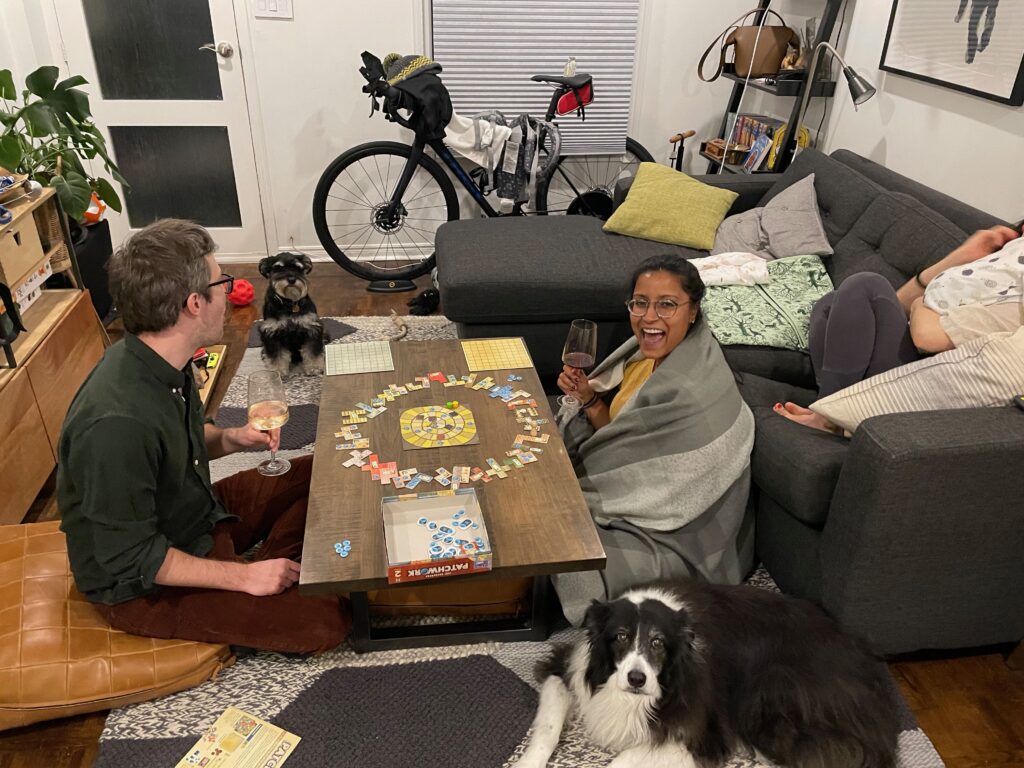
Pro-tip: Once you’ve selected a board game, it’s a good idea to run through the rules and gameplay BEFORE game night.
This way, you’re not spending too much time learning how to play instead of actually playing! You can easily find video tutorials or digital versions of the rules online.
4. Remove Distractions
Before you start rolling the dice, or moving your meeples, it’s important to remove all distractions and set the right mood.
First, ask all participants to turn off their phones and electronic devices or silence notifications. This keeps everyone super focused on the game and feeling less distracted. Also, turn off the television.
Secondly, if you’d like, turn on some background music. Perhaps choose a music playlist that matches your theme. The right music definitely enhances the gaming experience!
Lastly, make sure the lighting in the room is adequate to play. Sometimes this means turning on more lights so players can see and read game prompts. Lowering the lights creates a more dark and sinister vibe that suits other board game.
5. Take Loads of Photos!
Taking photos and sharing board game night with extended family and friends helps to spread the joy and happiness to others.
So, before, during, or after board game night, it’s a good idea to capture photos of your gaming experience.
Whether its capturing the board mid-game, showcasing the final score, or simply everyone gathered and smiling around the table, a photo can really highlight a fantastic night.
Personally, I always try to photograph and share board game nights on social media. I like to showcase different games and love it when someone else is interested in playing.
And days or months later, when I’m scrolling through my past photos and see an image of a previous get-together, I’m always eager to set up another epic family or friends board game night!
Family board game nights are always a blast, especially when everyone is looking forward to it.
So, what board games do you play with your family? Let me know in the comments below!
This article contains affiliate links, which help support this blog at no cost to you!

